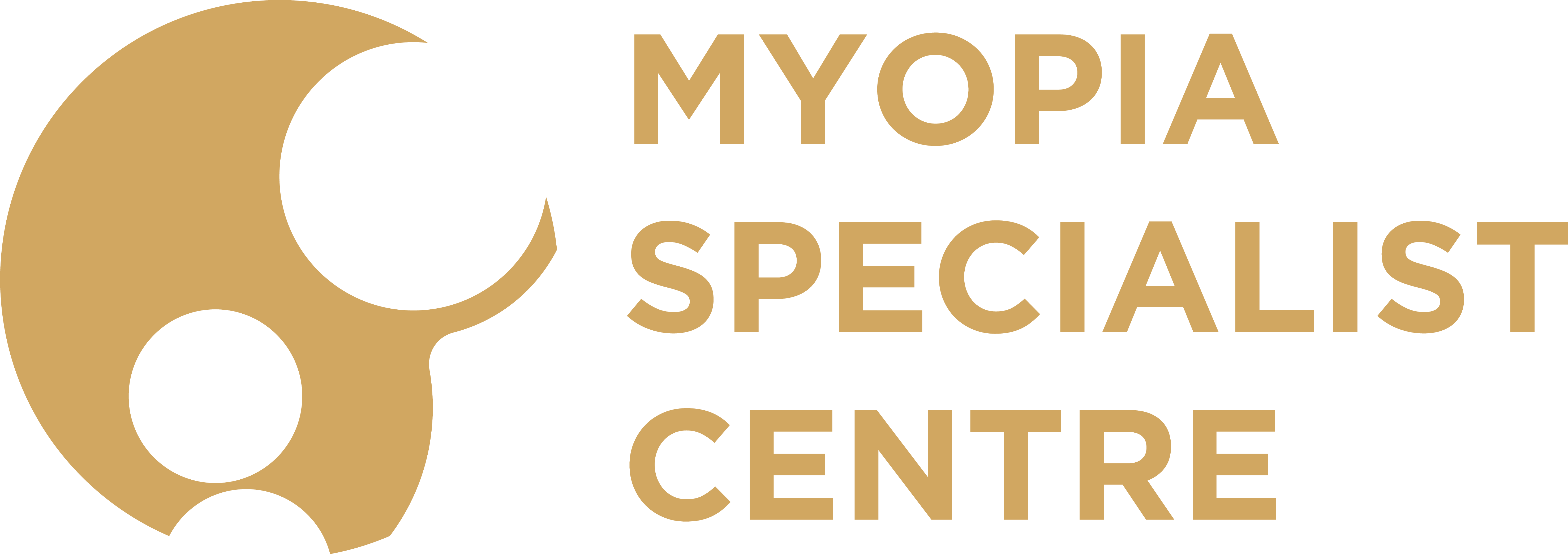Myopia
Myopia, also known as short-sightedness or near-sightedness, is one of the most common eye conditions worldwide. It causes blurred vision for far/distant objects whilst near/close vision remains clear. For example, watching a movie at the cinema may be blurry or difficult to see but reading a book will be clear and in focus.
Causes of Myopia
In a “perfect” eye known as Emmetropia, vision is clear for everything far and near. When light enters an Emmetropic eye it focuses directly onto the Retina (the area at the back of the eye responsible for light absorption) (photo) and this results in clear focussed vision.
In a Myopic eye however, light entering the eye focuses in front of the retina (photo) thus resulting in blurred vision for objects far away. This may be caused by:
- The eyeball being too long thus the eye is unable to focus light on the retina – known as Axial Myopia
- The Cornea (clear window at the front of the eye) or Crystalline Lens (the flexible structure in the middle of the eye) are too curved in shape or too powerful thus inhibits the eyes ability to focus light on the retina – known as Refractive Myopia
Severity of Myopia
- Low Myopia is considered around 0.00D to -1.50D
- Moderate Myopia around -1.50D to -6.00D
- High Myopia around >6.00D (prompt for “How to interpret my prescription?”)
Higher degrees of Myopia are more concerning as it can lead to the development of many more concerning eye conditions.
- Clear vision for near/close objects, blurry vision for far/distant objects
- Holding books/ reading material closer to your face in order to see clearer
- Sitting closer to the TV to see better
- Difficulty reading the board whilst seated at the back of class
- Difficulty seeing bus numbers until they are very close
- Rubbing/squinting your eyes
- Difficulty with driving vision, particularly at night
- Complaining of headaches/ eye fatigue
If you would like to find out more about Myopia please click here.
Get in Touch
If you are concerned about your own or your child’s vision it’s best to book an eye examination to have this properly tested and diagnosed.




